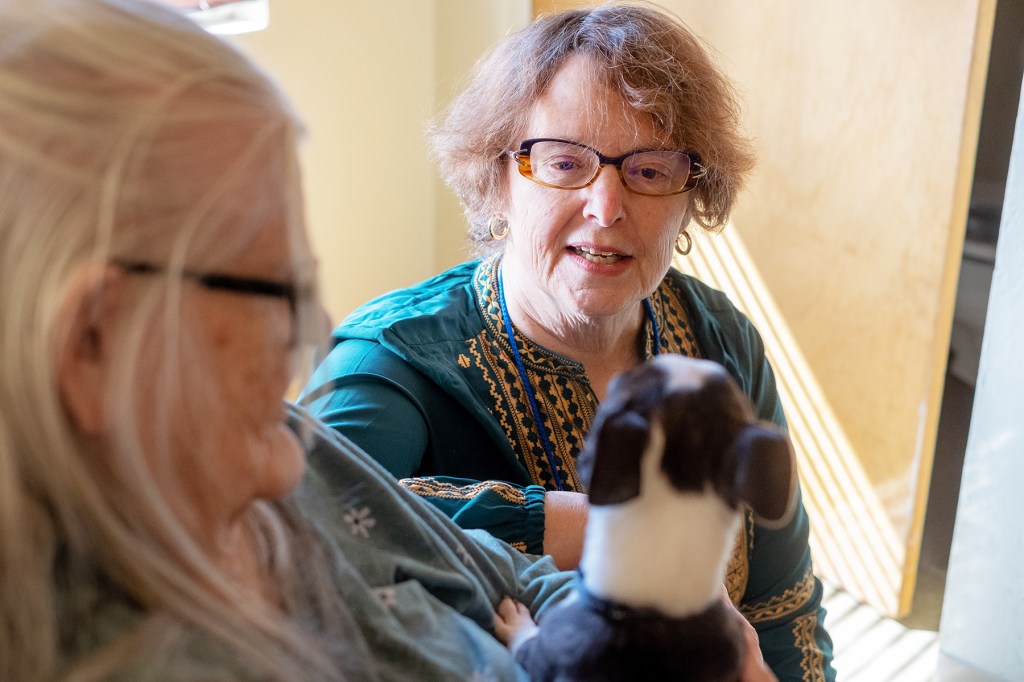Volunteers sought to advocate for residents of long-term care facilities
Published 7:44 am Friday, April 11, 2025

- Valerie Conner, certified ombudsman, talks with Ella Parker, 89, on March 7, 2024, and Parker’s therapy puppy, Mac, at Willowbrook Terrace in Pendleton. (Yasser Marte/East Oregonian, File)
Valerie Conner hopes a couple dozen people will volunteer to serve as advocates for people living in assisted living or adult foster care homes in Eastern Oregon.
But she’d be pleased to have 10.
Conner is a recruiter for Oregon Region 9’s long-term care ombudsman program.
That region includes these counties: Baker, Union, Wallowa, Grant, Umatilla, Morrow, Harney and Malheur.
Volunteers devote around four hours per week to work with people who live in long-term care facilities or who have skilled nursing care, Conner said.
A big part of the job is to simply meet and talk with residents, she said.
But ombudsman volunteers also listen to complaints from residents or their families about the care they are receiving. In some cases, Conner said, a volunteer will report the situation to the appropriate state agency that regulates long-term care facilities and ensures they follow state rules.
“We all act as advocates for the residents,” said Conner, who lives in Umatilla County and is one of five current volunteers in the ombudsman program. “It’s all about quality of life for residents.”
Conner said volunteers deal with issues such as residents who aren’t getting the medication they’ve been prescribed, or who have concerns about how often their rooms are cleaned.
Ideally, she said, there would be one volunteer for each facility.
But the current roster falls well short of that goal, Conner said, with only five volunteers, herself included, for a region with 64 facilities.
For instance, there are six assisted-living facilities in Umatilla County, as well as nine adult foster care homes, but only one ombudsman.
Baker County, with six facilities, three of those assisted-living facilities, had two volunteers for many years but now has only one, Conner said.
Volunteers, who need to be at least 21, must complete a training to be certified. The initial training takes place over six days, and is available online so volunteers don’t have to travel.
The next training sessions are set for May and September. However, Conner said if there is sufficient interest in this region, it’s possible that another online training course could be scheduled for summer.
Volunteers are subject to a background check and must pass an exam after their training.
Once accepted into the program, they are certified and have the authority, under state law, to visit their assigned facility at any time to meet with and advocate for residents.
The program compensates volunteers for mileage, Conner said.
She believes the program is vital because residents of long-term care facilities rarely report concerns, and potential violations of state rules, unless they meet with an ombudsman.
“They’re not going to call or email,” Conner said.
The presence of an ombudsman can serve as an incentive for facilities to give residents the highest level of care, she said.
How to volunteer
People interested can send an email to Julie.Maw@rights.oregon.gov to get an application packet, or call 503-378-6533. Volunteers can also call Conner at 503-453-7193.
More information about the program is available at www.oltco.org/volunteer/ltco.html.





